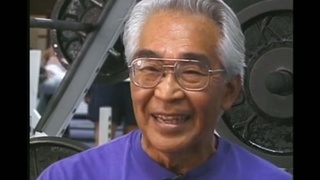Interviews
The reason for coming to Japan
The reason why I came to Japan was because I had an offer to play racquetball, which was my former sport at the time. I was a racquetball player—me and my brother. They wanted my brother to come, but because he was one of the top players, pro racquetball players in the pro tour, he was busy. So they kind of went down to the younger brother. “Oh, what about Enson?” And I was here. I had no idea what Japan was about. I couldn’t even imagine what the country was like. I really thought it was—I understood it was my roots, but I actually thought it was some weird place where people don’t speak the language. All Nikkei, all Japanese people there—I felt kind of weird. But I thought if you experience the culture, it would be a good trip. So, actually, the reason why I came out here was for a two-week racquetball tournament.
Date: October 14, 2003
Location: Saitama, Japan
Interviewer: Art Nomura
Contributed by: Art Nomura, Finding Home.








